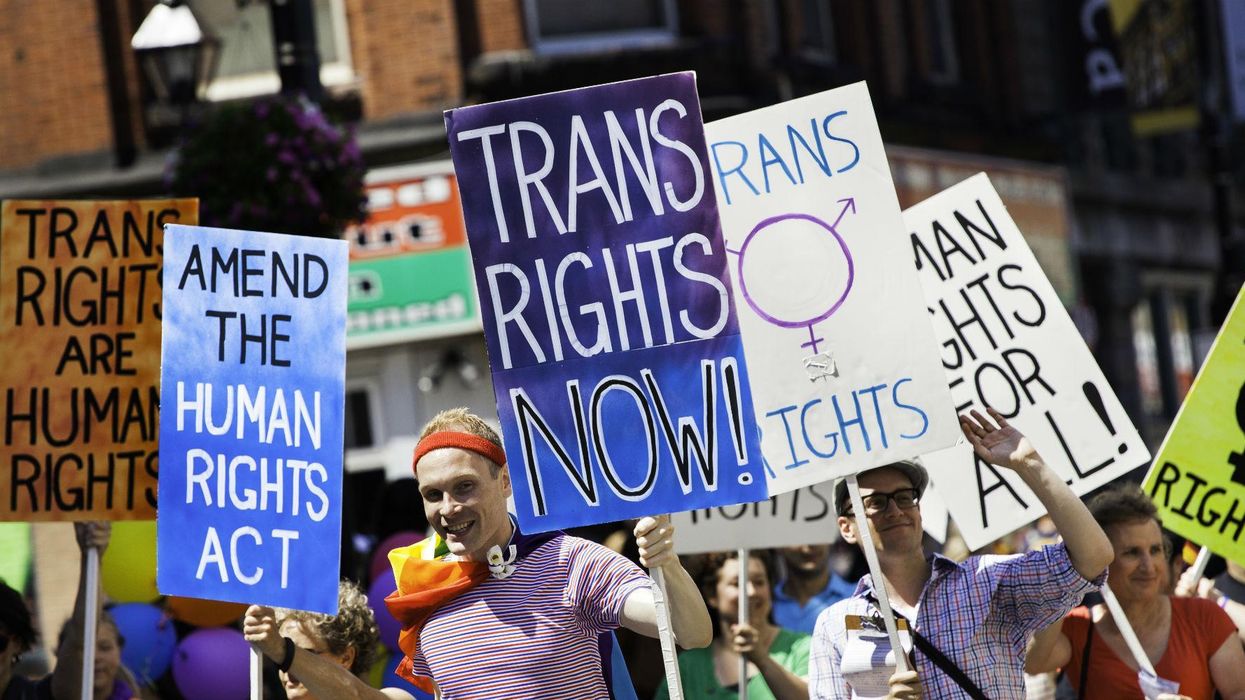News
Louis Staples
Apr 05, 2018
A new study has found that allowing young transgender people to use their chosen name significantly reduces their likelihood of attempting suicide.
The research, published in the Journal of Adolescent Health, consulted trans people between the ages of 15 and 21. After conducting interviews, it found that using their chosen names made a huge difference to the lives of respondents.
These results were then compared with trans young people who were unable to use their chosen names, which revealed that interviewees who could go by their chosen name experienced a 71 per cent decrease in symptoms of depression.
They also reported a 34 per cent decrease in suicidal thoughts, and a 65 per cent decrease in suicide attempts.
The researchers also found that two thirds of the 129 trans youths had been bullied, while more than four in five had self-harmed.
Professor Stephen T. Russell of the University of Texas at Austin, who authored the study, said:
Many kids who are transgender have chosen a name that is different than the one that they were given at birth.
We showed that the more contexts or settings where they were able to use their preferred name, the stronger their mental health was.
I’ve been doing research on LGBT+ youth for almost 20 years now, and even I was surprised by how clear that link was
Trans writer Juno Dawson stresses the importance of addressing trans youth as they choose. She told indy100:
This is about more than a name. It’s about letting young people know they’re being heard and that their well-being is taken seriously.
Author CN Lester agrees that using someone’s correct name and pronoun isn't just about courtesy, it's about respecting someone as they are, as they explained to indy100:
When the majority of gender non-conforming and/or trans teenagers face bullying and ostracism both at school and at home, making the effort to use the correct name and pronoun can make a profound difference.
As a teen I was told, openly and by implication, that I didn't belong, that I shouldn't exist, that I needed to change. Just one person saying 'who you are is valid' can give you the strength to keep going.
According to research by LGBT+ charity Stonewall, almost half of trans young people in the UK have attempted suicide, with eight in ten experiencing bullying at school. One in ten also reported receiving death threats at school.
Reacting to the study, Bex Stinson, Stonewall’s head of trans inclusion, said:
Using a trans person’s correct name is as important as it is for anyone – it’s basic manners. Addressing trans people with their correct pronoun and respecting someone’s pronouns is also crucial.
We work with organisations to help them create inclusive environments where all LGBT+ people are accepted without exception and everyone can reach their full potential.
Ellen Murray, founder of GenderJam, a trans youth charity in Northern Ireland, also advocates for referring to trans people as they choose.
The benefits to trans young people being affirmed and recognised as who they are can't be understated. Especially for young people, who often struggle to have control over large parts of their lives and to access other forms of transition, having a name, pronouns and identity affirmed can be life-changing, as we see every day through our work.
GenderJam sees hundreds of trans and questioning young people through the doors every year, and we see an enormous change in many when they're recognised as who they are at home and at school.
Tongan LGBT+ rights activist Joleen Mataele, who co-founded The Pacific Sexual and Gender Diversity Network, a trans-fronted advocacy group that represents the interests of LGBT+ people in the Pacific region, told indy100:
It is important for people of all sexual orientations and gender identities to be treated with respect. I left school at 14 because I couldn’t handle the bullying and being stigmatised every day.
We need to educate people on how to treat others with respect, including referring to people with the name they choose.
And trans author Juno Roche also criticises referring to trans people by their dead name – a term used to describe a trans person’s given name before their transition.
Being called by your chosen name is the most fundamental act of respect that allows you access to the world, to breathe easily and to feel that your authenticity is honoured by others.
Someone misnaming, dead-naming or misgendering is perpetuating a micro act of aggression and violence, to persist in doing so is bullying and incredible spiteful. It's tough to be a young trans person and have to keep correcting the world when all you want to do is be in it and be part of it.
Dead-naming has been in the headlines recently, after comedian Ricky Gervais faced criticism for referring to Caitlyn Jenner by her former name 15 times during a new Netflix special.
Responding to Gervais’ comments, trans comedian Shon Faye described the impact that dead-naming can have.
Dead-naming is such a horrifying thing to do to any trans person because it says that their true identity and their authentic self and the steps they have taken to be recognised by society more authentically can be snatched away at any time.
It’s also just courtesy. If you change your name that is your name and people should respect it.
If you have been affected by this article, you can contact the following organisations for support:
More: Transition surgery improves the quality of life for trans women, study finds
More: Ricky Gervais' new 'transphobic' jokes are causing outrage
Top 100
The Conversation (0)














